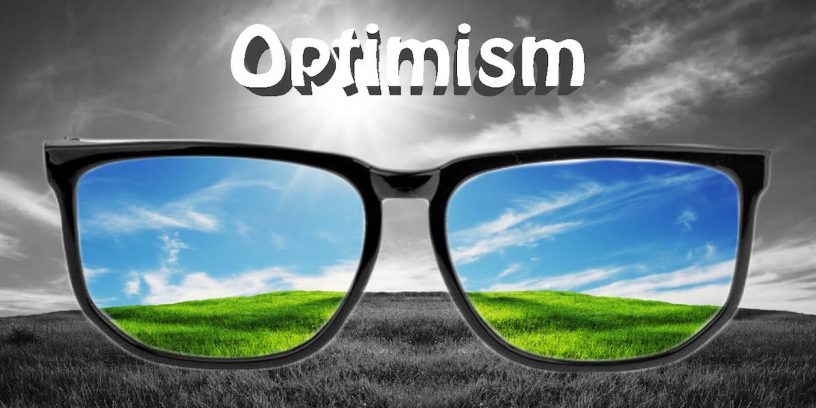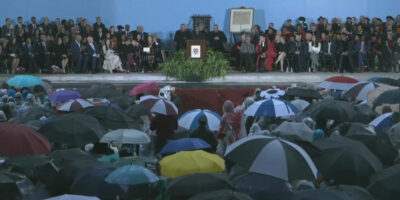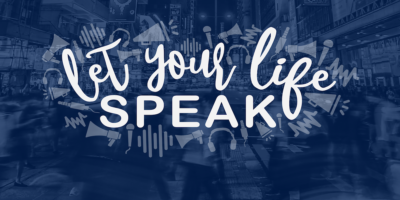Yesterday was the Winter Solstice.
Depending on your view of things that means it was either the shortest day or the longest night of the year.
The reality, of course, is that it was both.
And so it goes for other kinds of reality, too.
At the end of what may seem like one of the angriest, most divided and combative years in modern American history, if you want to look for the struggles and problems around us, you’ll find them easily enough. The night, it would seem, is far from over.
And…
If you choose, instead or in addition to that dark soul gazing, to seek out strengths, virtues, accomplishments large and small, and acts of simple human kindness, I assure you, they are all around us as well.
So on this weekend of Winter Solstice, with only a week or so remaining in 2019, should you be pessimistic or optimistic about the state of the world and our future?
Well, you get to choose, but consider this:
Many studies have shown that a positive outlook is the most important predictor of resilience. Optimists bounce back faster.
For athletes (and others) focusing on strengths and what you do well leads to faster improvement than hammering away on mistakes.
Businesses and other organizations with cultures that are more positive and appreciative are also more successful and lasting.
How you view and describe the world, or your particular corner of it, really does go a long way toward creating it, for yourself and those around you.
And if you think your particular circumstances, or even the circumstances of the entire country or world right now are simply too dire for silver linings, please think again.
In 1946, Viktor Frankl published Man’s Search for Meaning, a chronicle of his experience as a concentration camp inmate at Auschwitz during the Second World War, and introduction to what he called “logotherapy,” the idea that finding meaning in life is the most powerful and motivating force driving human behavior.
Despite the horrors of the concentration camp and the loss of every family member and friend he had ever known, Frankl discovered that life never ceases to have meaning, even in suffering and death. In fact, he determined, “love is the highest goal to which man can aspire,” and even a man who seemingly has nothing left in the world may still experience bliss, and hope for the future, simply contemplating what he loves.
None of this is to suggest that problems don’t exist, that genuine evil or misdeeds should not be recognized and fought against, or that 2019, on balance, may not have seemed worse than other years we may have forgotten.
But relentless negativity is draining, and people, organizations, and entire nations move in the direction of their vision.
In the days that remain to us this year, my hope is that we find the resilience, the positivity, and the appreciation of the many good things around us to find our meaning, and to focus our vision, on even better days ahead.
If you are looking for some tools and resources to help you in your optimistic quest, here are a few you may find particularly useful and inspiring:
- Visit the web site and subscribe to the morning emails of The Optimist Daily, an organization with a mission “to accelerate the shift in human consciousness by catalyzing 100,000,000 people to start each day with a positive solutions mindset.”
- While you’re at it, stop by the web site and definitely sign up for the occasional Future Crunch newsletter, a compendium of good news stories from around the world that you may have missed, lovingly assembled by an amazing team of scientists, tech wizards, artists, ecologists, and at least one “Optimism Director” who all believe that “science and technology are a powerful force for good.
- If you want an even deeper dive into why some of the news you think you know might be turning you toward despair when it should be boosting you toward hopefulness, spend some time roaming Matt Ridley’s blog. Author of The Rational Optimist: How Prosperity Evolves, Ridley is known for rooting around common misperceptions about problems (like crime, health, and poverty) and finding some unexpected silver linings. For a taste of classic Ridley, you can’t beat his essay in the Wall Street Journal last year, “Why People Prefer Bad News.” (His punchline: “Cheer up. The world’s doing better than you think.”)
- And longtime readers of my Running the Campus blog will recognize the name Victor Perton, a.k.a. “That Optimism Man,” as a good friend, former member of Australia’s Parliament and Commissioner to the Americas who now writes books about leaders’ reflections on positivity, and is opening Centres for Optimism around the world.
Finally, for several years I was involved with Optimist International, a worldwide volunteer organization that serves children and communities, and promotes optimism as a way of life.
I was the president of the Auburn Hills, Michigan chapter of Optimist International for a while. Each Thursday morning at 7:30 a.m. we would meet at our local Boys and Girls Club, say the Pledge of Allegiance, have breakfast, listen to a speaker, and plan our activities for the week.
We ended each meeting at 8:30 by reciting the “Optimist Creed,” originally published by Christian Larson in 1912, and no less aspirational and hopeful more than a century later.
On this weekend of Winter Solstice, at the end of this particular year, it is what I am promising myself—and what I hope for you, and all of us, too.
The Optimist Creed
Promise Yourself
To be so strong that nothing can disturb your peace of mind.
To talk health, happiness and prosperity to every person you meet.
To make all your friends feel that there is something in them.
To look at the sunny side of everything and make your optimism come true.
To think only of the best, to work only for the best, and to expect only the best.
To be just as enthusiastic about the success of others as you are about your own.
To forget the mistakes of the past and press on to the greater achievements of the future.
To wear a cheerful countenance at all times and give every living creature you meet a smile.
To give so much time to the improvement of yourself that you have no time to criticize others.
To be too large for worry, too noble for anger, too strong for fear, and too happy to permit the presence of trouble.






